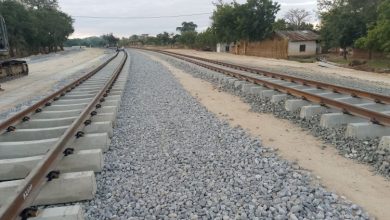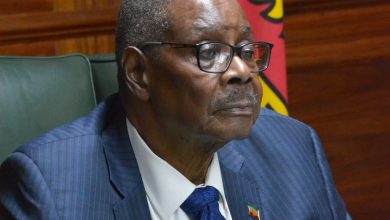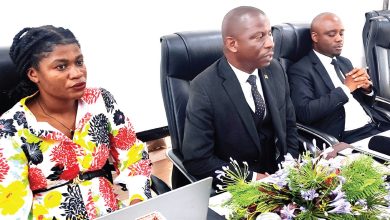No rights without sign language
Today is the International Day of Sign Languages. The communication gaps faced by deaf persons call for public institutions and all sectors of public life to make sign language part of the deal to improve access to information, writes Malawi Council for Disabilities Affairs (Macoda) communication specialist HARRIET KACHIMANGA.
For persons with disability, the path towards equal rights is paved with touching stories of personal struggle and resilience.
Among deaf people, these stories of tenacity show the need for sign language accessibility across all sectors to bridge the communication gap.
Margaret Ruvas lost her hearing senses a few years after birth.
She recounts numerous challenges caused by hearing loss.

Her basic education at Maryview School for the Deaf in Thyolo provided essential skills, but struggled to learn when she went to secondary school education.
“Teachers had inadequate sign language skills,” says Ruvas, 20. “This affected my academic performance. I failed my Malawi School Certificate of Education (MSCE) examinations.”
The setback disrupted her progress to university.
Nevertheless, Ruvas did not give up. With sponsorship from Tikonze Apapa Foundation and support of sign language interpreters at Chiradzulu Secondary School, Ruvas scored 31 points in the national examination on second attempt.
She later enrolled for her dream career—social work—, which helps her advocate the rights of her deaf peers to access education, personal development and lifelong opportunities.
Ruvas says: “While celebrating my successes, I often think of the dreams that felt out of reach and the knowledge I couldn’t acquire simply because my right to accessible education was ignored.
“Sometimes, I envy my peers who can hear. They progressed from secondary school to university with ease.”
Similarly, Isaiah Mkwaila, a 37-year-old social monitor working in the transport and logistics industry, says the absence of sign language interpreters almost derailed his studies for a diploma in information technology in Blantyre.
“I failed to grasp most of the content,” he says in frustration, adding that “I was attending the classes physically, but I was mentally absent. Being in class felt like watching a silent movie.”
But Mkwaila did not let the limitations derail his dream.
“I was constantly trying to catch-up after classes and I felt isolated for not being given the same chance to learn,” he states.
Macoda director general George Chiusiwa says the right to education goes beyond class attendance—for it involves active and effective participation, clarification and the ability to engage with teachers.
He says: “For deaf people, the ability to exercise these fundamental human rights hinges entirely on the availability and quality of sign language interpretation.
“Sign language is a core human rights pillar that is central to enjoyment of all fundamental rights by deaf persons. Malawi’s laws recognise sign language as an official language or a formal mode of communication and as a human rights entitlement.”
Chiusiwa reminds public and private institutions that failure to provide sign language interpreters effectively denies the deaf the dignity, equality and the rightful place every human being deserves.
Article 2 of the United Nations Convention on the Rights of Persons with Disabilities recognises sign language as equal to spoken language.
Section 30 of Malawi’s Persons with Disabilities Act of 2024 mirrors this principle.
“This provision mandates access to information in accessible formats, placing an obligation on service providers to offer sign language interpretation for crucial services like justice, education, health, political participation, information and financial access,” says Chiusiwa.
This makes sign language a pivot of deaf rights and requires duty bearers and service providers to provide skilled interpreters in all spheres of public life.
Sign language interpreter Ganizani Killowe says Malawi’s growing commitment to inclusion for persons with disabilities is encouraging.
He says: “Recently, government agencies and some private institutions have embraced and understood the importance of having sign language interpreters in its programmes.
“Almost every public event organised at ministerial or presidential level has interpreters bridging the communication gap for the deaf.”
Killowe commends some religious communities for providing sign language interpretation during their events.
He observes that the growing interest has increased enrolment in sign language training programmes.
“However, there is a need for the government to train and deploy sign language interpreters in critical institutions, including hospitals, police formations local councils and the courts,” he says.





